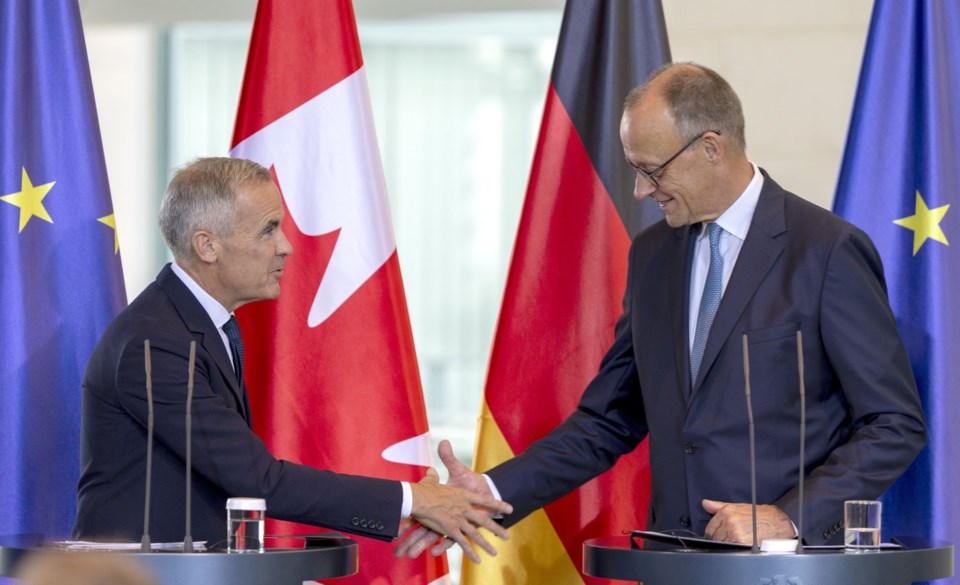BERLIN — Canada signed a critical minerals partnership with Germany on Tuesday that encourages the joint public financing of natural resources projects as Ottawa works to boost development and exports to Europe.
Prime Minister Mark Carney said for too long, key Canadian minerals such as nickel and cobalt have gone underdeveloped while China and Russia dominate the global market. Critical minerals are key for emerging energy and defence technology.
He said Germany has become a leader in Europe as it works to diversify away from China and Russia.
"Canada can play a role in accelerating that diversification for Germany, and for Europe," Carney said at a joint press conference with German Chancellor Friedrich Merz.
"These issues are only going to become more important. There's likely to be a fourfold increase in the demand for critical minerals and minerals over the course of the next decade."
Afterward, Natural Resources Minister Tim Hodgson told reporters that Canada is positioned to develop "mine-to-magnets" supply chains that lend Ottawa an advantage in deepening trade ties with countries like Germany.
"It gives us a really great card with our allies, our like-minded allies, and it takes a card out of the hands of people who might have a different perspective in the world," he said.
At the same time, three Canadian companies in the mining sector — Troilus Gold Corporation, Torngat Metals and Rock Tech Lithium — all signed co-operative agreements with German companies.
Carney also said Tuesday that the two countries aim to closely co-operate in energy, including on liquefied natural gas and hydrogen energy.
The prime minister said Ottawa plans to formally announce new investments in port infrastructure in the next two weeks, and pointed to port upgrades in Montreal and Churchill, Man. that will help exports of energy and mineral products.
Hodgson, who was one of several ministers on the overseas trip, said the goal for new natural gas exports to Europe, based on what he has heard from various project proponents, would be to have shipping begin in "as little as five years."
"What we heard from German industry today was, and quite frankly from the minister as well, is Germany sees natural gas as a transition fuel," Hodgson said after meeting with business leaders.
"There was a view prior to a few years ago that the need for natural gas would be relatively minor and relatively short-term, and I think what we all realize — post the Ukraine, post what's happening with AI — (is) that natural gas is going to be a transition fuel that's in greater demand in Germany and for a longer period of time."
Both countries also tapped senior bureaucrats as special envoys to advance the new mining partnership.
Canada's point-person will be Isabella Chan, senior assistant deputy minister for the lands and minerals sector at Natural Resources Canada, while Germany appointed Matthias Koehler, its deputy director general of raw minerals policy.
— With files from Kyle Duggan in Ottawa
This report by The Canadian Press was first published Aug. 26, 2025.
Craig Lord, The Canadian Press



